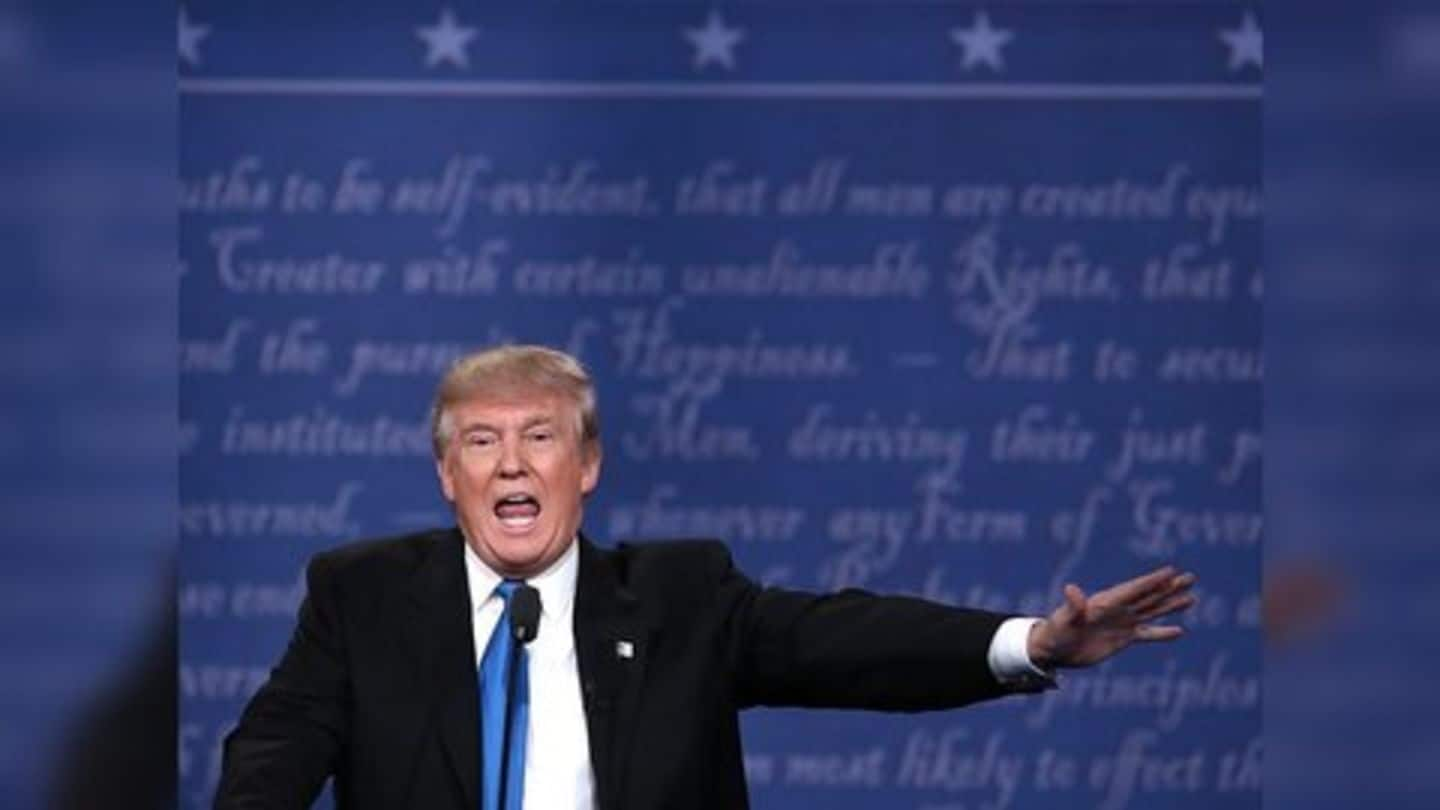
Despite Google's assurances, Trump might regulate Google over 'bias'
What's the story
In Donald Trump's latest outburst, the President has accused Google of rigging search results and displaying only negative stories about him. Building on Trump's accusations, the Trump administration, on Tuesday, said that it would explore the option of regulating Google. However, Google has refuted all claims of censorship, and many believe such a move would undermine online free speech. Here's more.
Allegations
Trump's allegations against Google marks an escalation
In what marked an escalation into allegations of bias against tech companies like Facebook and Twitter, Trump tweeted saying that Google "have it [search results] RIGGED, for me & others, so that almost all stories & news is BAD." Subsequently, Trump's top economic adviser, Larry Kudlow, said that the White House was "taking a look" at whether and how Google could be regulated.
Quote
Trump warns Google, Twitter, and Facebook
"Google and Twitter and Facebook, they're really treading on very, very troubled territory. And they have to be careful. It's not fair to large portions of the population," Trump later added.
Google's response
Google's response to Trump's allegations
Google, however, responded strongly to Trump's allegations of censorship of conservative voices. Explaining that Google's algorithms return search results taking into account multiple factors like a users' geographical locations and search histories, Google spokesperson Riva Sciuto said, "Search is not used to set a political agenda and we don't bias our results toward any political ideology."
Search
Google has faced investigations in the past
Here, it's worth noting that Google's search results algorithm has always been shrouded in secrecy, and Google has, in fact, faced investigations in the past for allegedly promoting its own products and services in search results. Additionally, Google itself hasn't always been ethically upright, considering that it is reportedly mulling releasing a censored search engine in China that will incorporate stringent Chinese censorship rules.
Suspicions
High-profile faux pas have also fueled suspicions among conservatives
Suspicions of censorship among conservatives have also been fuelled by high-profile faux pas by tech companies in the past. In 2016, the Presidential Election year, anonymous Facebook employees had alleged that Facebook was censoring conservative views in favour of liberal or left-leaning views for its "trending" news section. Trump has also, of late, levelled accusations against Twitter for "shadow banning" Tweets from conservatives.
Political motive?
Are the attacks on tech companies politically motivated?
Yet, all's not black and white, and questions about political motives need to raised too. Trump's attack on social media and tech companies have intensified over the past few months, with the 2018 mid-term elections drawing near. Reportedly, the Trump campaign has cited these attacks on supposedly biased tech companies in a bid to garner donations from conservative voters who already suspect foul play.
Regulation?
Can Google search results be regulated? It's debatable
So, can the Trump administration regulate Google's search results? Well, it's debatable. According to both Democrat and Republican lawmakers, regulating Google's search results would violate the US Constitution's First Amendment that protects free speech. Notably, federal courts had earlier ruled online search results to be protected speech as they resembled editorial content produced by more traditional sources of information.
Tricky times
Tech companies are increasingly navigating tricky territory
Regardless of the threat of regulation, what Trump's allegations point towards is the tricky political terrain that Google, and other US tech companies currently have to navigate. While there's a demand on tech companies to moderate content to remove hate speech, prevent online harassment, and promote civil and political discourse, these decisions aren't always straightforward, and removal of content can often lead to controversy.